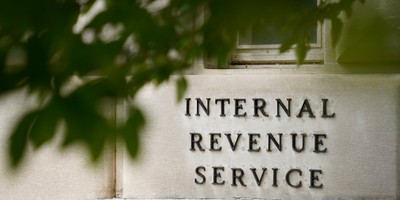The suffragettes at Seneca Falls in 1848, the marchers at Selma in 1965 and the resisters at the Stonewall Inn in 1969 all led the way toward tolerance, but the president spoke of their sacrifice as if frozen in a time warp of old grievances and tribulation. Even elevating the barroom brawl at Stonewall to landmark status with voting rights for women and the civil rights revolution is a few inches over the top.
Obama's frantic search through his binders of women, looking for names to fill low-level positions for women to make it look "more like America," veers from the ridiculous to the theater of the absurd.
The search for such phony diversity is of a piece with the culture. Consider, for example, the HBO hit "Girls." Lena Denham, its creator, was scolded for not casting a black actor as one of the show's characters.
Since her characters -- college-educated, privileged young women with rich parents -- are drawn from the writer's own personal experiences, they're logically all white. But the chastened Denham responded with satire, intended or not: This season begins with Hannah, her leading character, taking a black boyfriend who is a conservative Republican. She criticizes him with cliches, assuming he prefers friends with guns. She says she never noticed he was black.
When the spoiled liberal white girl discovers how awful it is that two out of three men in prison are black, the Republican boyfriend thanks her for tutoring him in the difficulties faced by black men. She's not sure if he's being sarcastic.
Making fun of white liberal condescension is rare on screens small and large, and hasn't been done with flair since Tom Wolfe satirized the "radical chic" of composer Leonard Bernstein, who served Roquefort cheese balls wrapped in crushed nuts to the revolutionary Black Panthers, who ran through his luxury Manhattan penthouse in leather pants and tight black turtlenecks, titillating his guests like a "rogue hormone." Like the lumpen proletariat, "victims" must be brought together for "collective action."
Recommended
The president who gave his inaugural address on Martin Luther King Jr.'s birthday was in no mood for good humor or challenging cliches and bromides. Nor did the man who invented eloquence inspire with the soaring rhetoric of the prince of the civil rights movement. He echoed the Declaration of Independence and the Constitution, and quoted a few lines from Abraham Lincoln, but he was determined to make the day more political than presidential, more prosaic than poetic, more pompous than patriotic and proud.
He suggested that our mothers and daughters are still unable to earn a living equal to the pay of men, even though statistics make clear that whatever gender gap remains, it's a gap created mostly by women making choices and trade-offs that are different from those of our fathers, husbands and sons. Historian Jay Winik observes that the president's speech was one that "could have been given 50 years ago."
The president continues to appeal to separation, to division, to littering the national landscape with regiments of straw men and women in the name of the politics of polarization. Intolerance and prejudice certainly remain in the culture, but no longer as a national attitude and not without corrective appeals to public exposure and legal remedies.
The visual trumped the verbal at this inauguration. If the speech failed to express unifying commonalities, the television camera surveying the crowd in Washington told the real story, of children raised to the shoulders of their parents, of beaming black, white and brown faces of young and old, of the gorgeous harmony of the Brooklyn Tabernacle Choir lifting the music of "The Battle Hymn of the Republic" to the sky, and of the beautiful Beyonce belting out "The Star Spangled Banner" (even if she did lip-synch it).
A grace note was provided by Richard Blanco, the young Cuban poet, speaking of the "many prayers, but one light breathing color onto stained glass windows."
They made it a day to be proud of America. Only an authentic grudge could not see the idealism that brings us together beyond political partisanship. This was the real and natural diversity that animates Lincoln's "mystic chords of memory," reaching out to "the better angels of our nature." Not even a president stuck in a time warp could spoil that.

























Join the conversation as a VIP Member